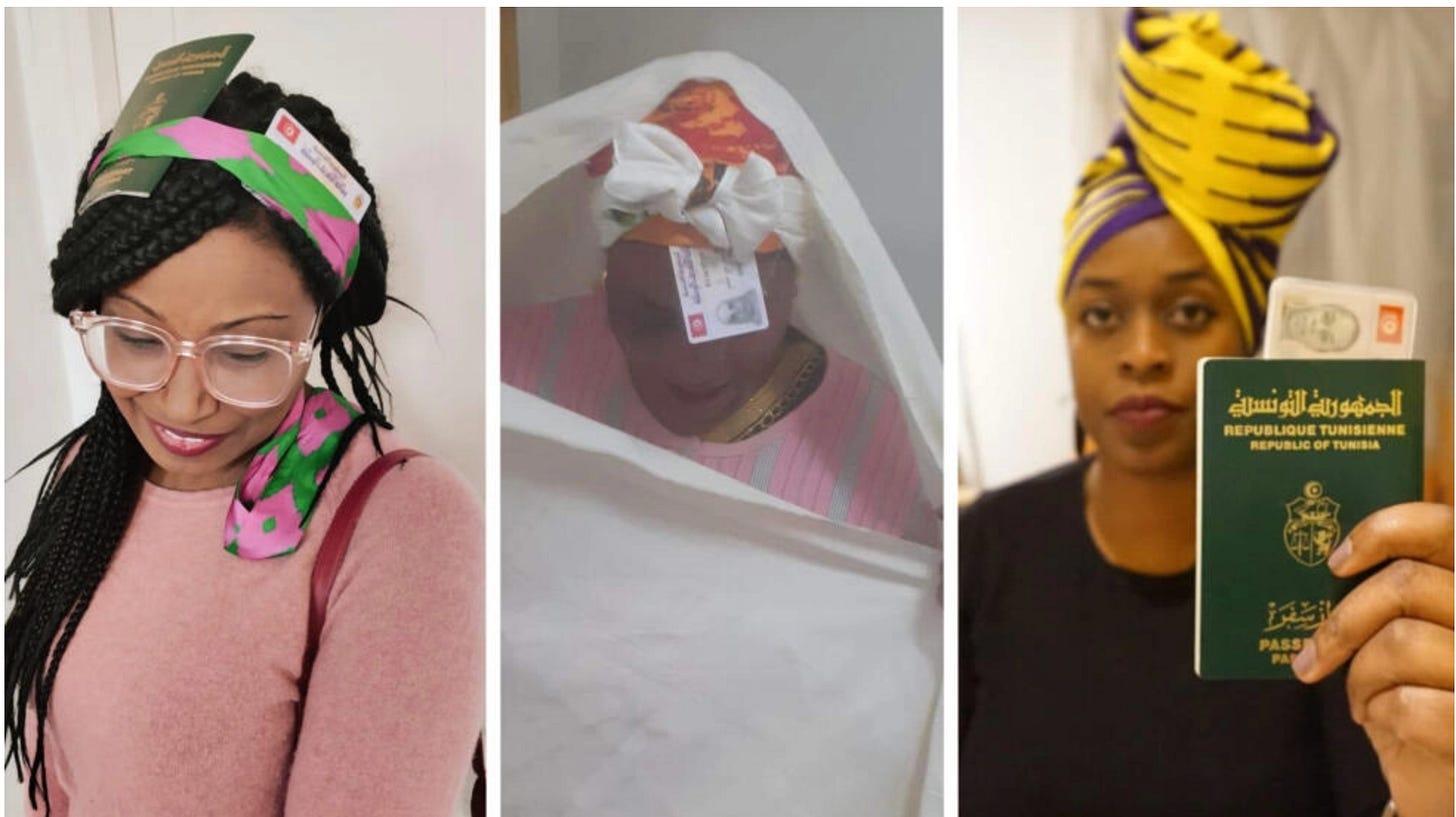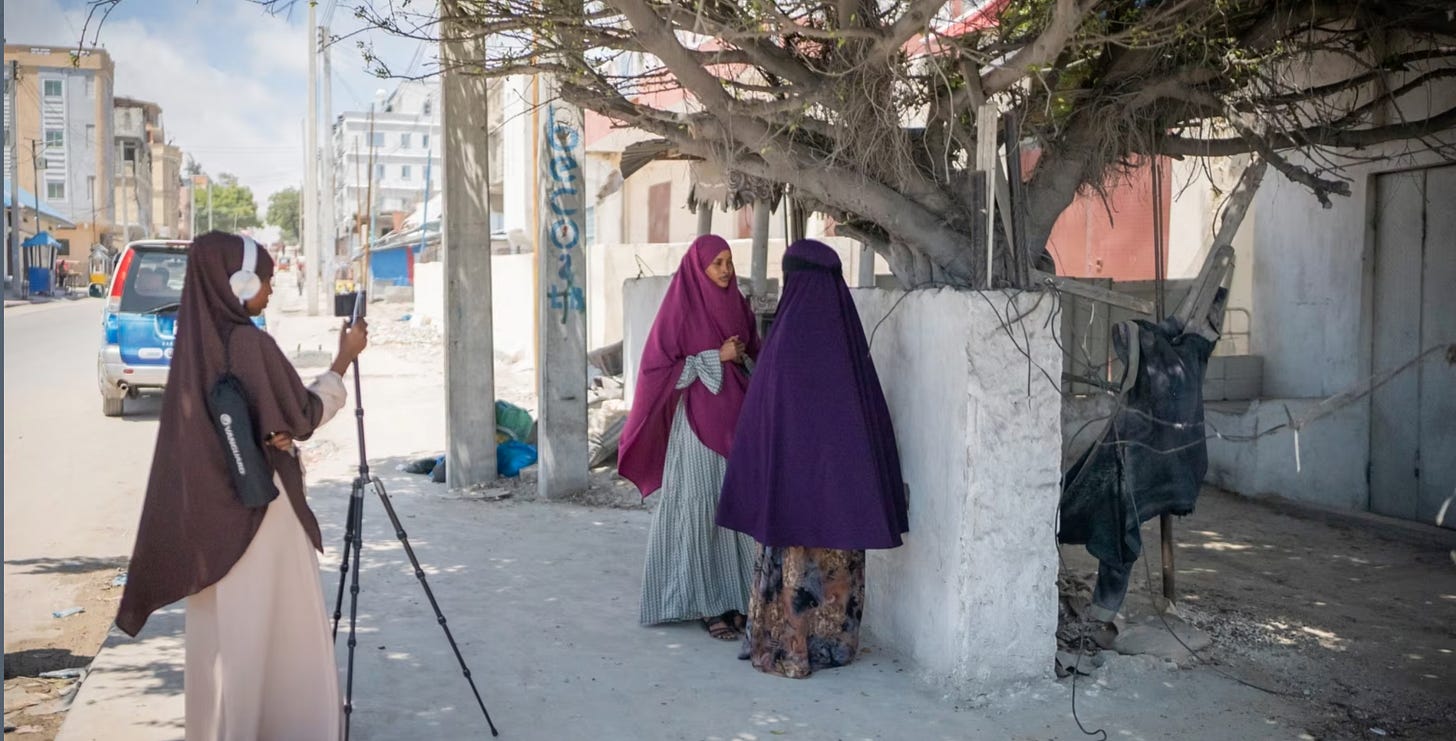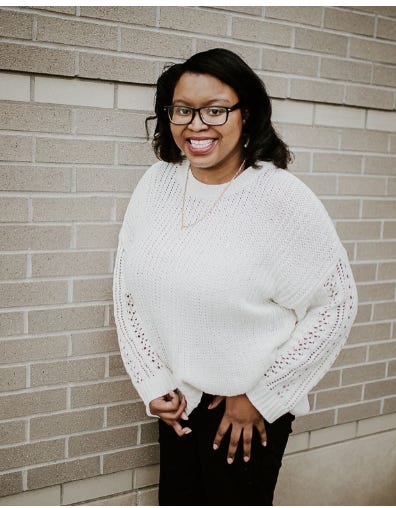Global Roundup: Supporting LGBTQ+ Syrians, Benin’s Abortion Laws, Black Tunisian Women, Somalia Women Journalists, Black & Queer Disabled Joy
Curated by FG Contributor Samiha Hossain
Image via SGSE Syria
In addition to losing their homes following the recent devastating earthquake, many Syrian refugees in Turkey are also dealing with the additional stigma of being LGBTQ+. Husam is one such queer person affected by the earthquake.
My queer books and other personal possessions are still at my home. My building was only partially destroyed so I’m nervous that my family will be allowed to return and discover my identity … I don’t know if this will actually happen but there’s still the fear. -Husam
Nour and her girlfriend are trans Syrian refugees. Nour shares the struggles they are both facing after surviving the earthquake. They do not have a place to live after being disowned by their families. They decided to go to a mosque providing shelter, despite being aware of the danger they might face there. They concluded that the men’s section would be the safest option. However, soon after entering, the men began to look upon them with disgust. Nour even heard someone say that the earthquake happened because of “creatures” like them.
So we decided to leave the mosque and spend the night outside at a place I heard about with tents. Today, I am sick and can feel the cold in my bones. -Nour
After a natural disaster, queer and trans people often face compounded suffering and must navigate various hurdles in accessing aid. Thus, LGBTQ+ Syrians in Canada and Europe have come together to try and support those who are still in Turkey and Syria. Mohamad Altasseh, a Syrian refugee who lives in Canada, is part of Seen for Gender and Sexual Equity (SGSE), a volunteer group that works on raising awareness of the violence, discrimination and human rights violations toward LGBTQ+ communities in Syria. A week ago, they launched a fundraiser to raise money for queer and trans survivors of the earthquake.
When the earthquake first happened, I was in shock. But after seeing the news coverage and social media posts the following day, I realized that LGBTQ people were not visible in this crisis. They were not being made a priority. So that is why we decided to step up and take action. -Mohamad Altasseh
Given that queer and trans people are not always welcome in shelters, Altasseh says that one of the main priorities right now is distributing money for safe places to stay, like hotel rooms and apartments. SGSE currently has a goal of raising $15,000 for LGBTQ+ survivors. But as Altasseh says, part of the goal of this fundraiser is to increase the visibility of an overlooked community.
A sign points the way to the delivery room in a Benin hospital. Many women in the country remain unaware of their reproductive rights.
Since 2021, abortion is permitted in Benin if the pregnancy is “likely to aggravate or cause a situation of material, educational, professional or moral distress incompatible with the interests of the woman and/or the unborn child.” Abortions can be carried out up to 12 weeks after the absence of a period. However, many barriers remain in terms of access.
Not everyone knows about this law. It is written in French; not everyone speaks French. We must translate the law into the national languages so everyone can be informed. Those who don’t yet have the information certainly will be resorting to unsafe abortions. -Dr Serge Kitihoun, director of medical services at Benin’s International Planned Parenthood Federation
Raïmath Moriba, president of Femmes engagées pour le développement, a non-governmental organisation, agrees that only people in large towns and cities know about the legal change so clandestine abortions persist. Moriba wants systems put in place where untrained people who perform or facilitate unsafe abortions are called out and punished.
Kitihoun believes awareness-raising workshops are needed, along with training for communities and healthcare professionals. There are doctors who refuse to carry out abortions because of religious reasons or because they have been brought up to believe it cannot be done, he says.
Beninese and African culture does not conceive that a woman can allow herself to be pregnant and then terminate the pregnancy. According to religious and spiritual teachings, it’s like taking the life of an individual. -Raïmath Moriba
As is the case in other countries, we know that legalising abortions is one of many steps in normalizing them. A lot of work must be done to ensure they are accessible to marginalized communities and cultural shifts are needed so that those seeking abortions can do so without fear or shame.
Black Tunisian women activists take photos of themselves along with their Tunisian passports and identity cards to denounce racism in Tunisia. © Voix des Femmes Tunisiennes Noires
Women are using a hashtag that roughly translates to “carrying my papers, because you never know,” to denounce the arbitrary arrests, racist profiling and identity checks that they have experienced since mid-February when the government launched a so-called security campaign aimed at clamping down on undocumented migrants from sub-Saharan Africa. Maha Abdelhamid, an organiser with the Tunisian collective Voix des Femmes Tunisiennes Noires (Voices of Black Tunisian Women), called on Black Tunisian women to share photos of themselves with their Tunisian identity cards to show solidarity with sub-Saharan migrants. She also wants to raise awareness about the violence experienced by Black people in Tunisia, citizens or not.
Black women have also been sharing their experiences of racism in Tunisia. One social media user said that two women mistook her for a foreigner. However, once she clarified that she was indeed Tunisian, the woman said, “We thought you were African, you know how they are getting on our nerves recently.”
Black Tunisian activist Fatma Ezzahra posted on Facebook about an incident that occurred last month. It began with a Tunisian woman verbally abusing her and it escalated into a physical fight. Ezzahra recounted that the woman called out to her in the street, believing that she was a migrant from sub-Saharan Africa.
I responded that I was Tunisian. She said to me, ‘In any case, you are not one of us and you’ll be deported along with them.’ -Fatma Ezzahra
Anti-migration campaigns only fuel the existing racism in communities. Black women activists in Tunisia are resisting by being loud and sharing their stories, and asserting their rights.
Journalists from the Somali women-led newsroom Bilan are seen on assignment. (UNDP/2022/Said Fadhaye)
Many women journalists in Somalia must defy family and societal expectations to do work that they believe is integral to their nation’s future. Farhia Mohamed Kheyre, 29, heads the Somali Women Journalists Organization, an advocacy group fighting for the rights of women in an industry that she and others say is rife with sexual harassment and discrimination. As part of those efforts, members of the organization have been traveling to newsrooms around Somalia to promote a handbook about how to recognize sexual harassment in the workplace and what to do about it.
For us, our focus is giving female journalists more training and skills. We are also doing advocacy. Some female journalists when they’re getting pregnant, they’re not getting the salary. When there are sexual harassment cases, we try to solve that issue. -Farhia Mohamed Kheyre
Kheyre was fascinated by journalism from a young age but when it came to pursuing the male-domnated profession, her father was against it. He was worried for her safety due to the insurgency by the militant group al-Shabab. Some of her other family members were concerned that a job in media went against cultural and religious norms in the Muslim country.
Bilan, a newsroom funded by the UN, is also an important initiative. Launched last year, the all-woman operation has a team of six female journalists. The outlet produces text, radio and TV stories, which are distributed locally by one of the country’s leading media houses. Bilan has gained a huge local audience and broken new ground on subjects like HIV, autism and women’s health, spurring public debate and calls for policy change.
Fathi Mohamed Ahmed is chief editor at Bilan. The 28-year-old journalist said she hid the fact she was studying media and for months told her family she was doing IT because they did not think journalism was a job for a woman. Today, however, they are proud of her. Ahmed says that the reporters speak to women sources all the time and it is much easier to report on sensitive topics such as intimate partner violence.
Bilan is different from the others because we focus on what’s going on in society: women, children, health…traditional media don’t cover this, they just focus on politics all the time. I like this job environment because we are free from harassment and we understand each other. -Fathi Mohamed Ahmed
It is inspiring to see women journalists in Somalia fighting the patriarchy and paving the way for future generations. Kheyre, who recently became a new mother, says she would never block her daughter from being whatever she wants when she grows up, whether that is a pilot, or yes, even a journalist.
(CLARICE BAJKOWSKI FOR THE 19TH)
For Black History Month, The 19th spoke with four Black and queer disabled creatives at different stages of their lives and at different stages in their relationship with joy. They were asked to describe their relationship with joy currently and the steps they took to get there. Keah Brown and Dominic Bradley’s stories will be shared here.
Keah Brown, 31, is a journalist, author and disability rights advocate. Brown discusses her years of being unhappy and not liking herself. She says her two core frustrations were not having Black disabled representation in the media and the way in which she was treated at school.
I really internalized what people said to me directly, and also what was said to me indirectly through movies and TV. -Keah Brown
Brown started to feel happy in 2017, when her writing was gaining recognition. She also had a hashtag go viral around the world: #DisabledAndCute.
It was a way for me to celebrate myself, and finally feeling good in my body and not waking up in the morning, and immediately saying, ‘I hate you, you deserve to die.’ It was me being excited about the fact that I could look in the mirror and smile at myself and say, ‘No, you deserve to live, you deserve to find happiness.’ -Keah Brown
For Brown, choosing joy means finding things that make her happy and “allowing those things to take up more space than the things that don’t.” She encourages others to identify things they like about themselves and acknowledges that it is a lifelong process.
Dominic Bradley, 40, is a writer, visual artist and performer. Bradley discusses how being a workaholic has prevented them from honouring commitments they have made to themself. They have a combination of mental and physical disabilities, which they say means that their usable hours are not the same as nondisabled people. Part of the struggle for them is ingrained in culture.
American culture is so concerned with grinding, and grinding and grinding some more until your body breaks down and then grinding after that. There are people who talk a good game about taking care of yourself, making time for rest and time for pleasure. But in practice, that’s not what we do in this country. That’s not what we value in this country. So the shift for me is to try not to get caught up in that constant messaging. -Dominic Bradley
Bradley urges people to listen to their bodies because your body will tell you how you really feel even if you are trying to convince yourself of something different.
I think that it is important to recognize our own cues for things like if we’re hungry, if we’re angry, if we’re lonely or tired. That’s information that, again, society trains us to ignore. I think it’s so important to reclaim and to recapture that. -Dominic Bradley
Samiha Hossain (she/her) is a student at the University of Ottawa. She has experience working with survivors of sexual violence in her community, as well as conducting research on gender-based violence. A lot of her time is spent learning about and critically engaging with intersectional feminism, transformative justice and disability justice.
Samiha firmly believes in the power of connecting with people and listening to their stories to create solidarity and heal as a community. She refuses to let anyone thwart her imagination when it comes to envisioning a radically different future full of care webs, nurturance and collective liberation.








